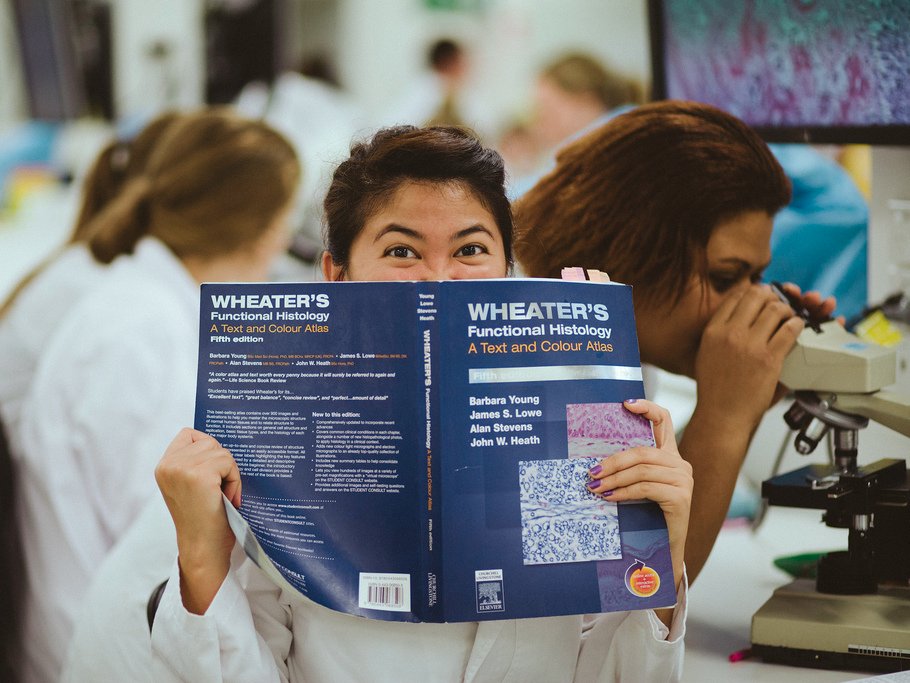How familiarization with the 119th applications of startups in 2 days destroyed my stereotype of “frivolity” of applications
The field of information technology is sometimes strongly criticized for developing trivial applications - indeed, we need an application for dating bacon lovers? But this is not the whole “set” of entrepreneurs working in this direction.

Indeed, during the two-day marathon of getting acquainted with applications for startups in Silicon Valley, I got an idea first-hand about how ambitious, potentially effective and “serious” the approached group of technological startups is.
')
“Food, housing, health care, transportation. The most vital and life-worthy positions made better and more accessible, ”said partner of the venture company Y Combinator Paul Bachheit, opening the second day of submitting applications at the company's traditional semi-annual event, which demonstrates the latest group of start-ups.
From new ways of detecting cancer to a new method of communication that can change everything and everything, below are some of the big ideas that the new generation of start-ups would like to tackle.
Medicine is a large, actively developed area for companies, and we are not talking about snapping a fitness bracelet and tracking it all day long. Startups are aimed at new ways to accelerate the laboratory process, facilitate analysis in this area, and even the early identification of diseases such as cancer. The startup "X-Zell" is aimed at eliminating healthy blood cells in the sample, which may allow to detect tumor cells. “This is completely the problem of finding a needle in a haystack. Many tried to find a needle - we clean the haystack itself, ”says the founder of the startup excitedly. Many startups are aimed at facilitating and accelerating the processes in the laboratory. One suggests a device that will perform such routine tasks as, for example, using a pipette to move fluids. Another startup, titled “Histology as a Service,” deals with cutting out tissue samples, registering and then sending them in digital form to doctors.

Another startup intends to translate histology into a digital field
I have never seen a “connected catheter” before, but products like it, created in appearance by small companies, can lead to a big change in the quality of life of some patients. The company "DoseDr" manufactures a device for diabetics, allowing you to monitor the level of sugar in the blood and determine the required amount of insulin. It was even presented a home screening device for breast cancer. A telephone and other connected devices can do more than track our steps; they are able, indeed, to change the quality of life for some people suffering from the disease.
From the AI project, which can write a sales letter for you, to a freelance system at your fingertips, allowing you to create PowerPoint presentations in a jiffy, there is still plenty of room for companies wishing to improve business management. Startups want to challenge the LinkedIn network in helping people connect with each other and look for work. There are many opportunities in sales for more clearly organized processes, judging by the number of startups who want to do just that.
The robot revolution is approaching and taking on different forms. One company, Iron Ox, offers robots to grow food in a warehouse, pack it, and ship it. In the future, this might mean that food will grow closer to cities, cheaper and tastier. The company Gecko Robotics proposes to exclude people from dangerous work, such as, for example, inspecting boilers, sending a robot instead of a man to crawl along a wall.
As more people come to the network in third world countries, start-ups appear in them, offering technological solutions for everything from the online market of crops to farmers getting better conditions for payments being developed for Nigeria. While many seem repetitive - “Stripe for Africa” or “Uber for trucking in India” were the key phrases used by companies — such markets can combine local knowledge and the advantage of “the first to enter this land” to beat companies to be made on their model. As the number of people entering the network grows every day, companies targeting these markets that are not yet saturated with smartphones are coming to a sharp, explosive growth over the next few years.
Everywhere talk about chat bots. Phil Libin, founder of Evernote, calls them the best thing he saw after the iPhone; startups also reflect the potential of this trend. Some startups have presented their work in the last two days, making it easier for companies to create their own chat people and access to customers, no matter where they are. It is possible that in the not too distant future, any person or any company, including a well-known one, will have his own bot; today's startups are at the beginning of this process.
However, all of the above does not mean that startups have stopped doing pleasing consumer products. During these two days, one of the most attractive demonstrations was the Tovala company's offer to replace all kitchen appliances with a small convection oven and a double boiler, making it possible to cook the most exquisite food.
And while some proclaim the decline of a “one-button service” (“economy of a one-click call”), there are still companies working to make it possible to call a nanny for a child or a stylist at the touch of a button.
Thus, for those who think that Silicon Valley does only chewing caffeine and develops ridiculous social applications, all the above shows that there are quite a few companies that are working to solve life-important problems.

Indeed, during the two-day marathon of getting acquainted with applications for startups in Silicon Valley, I got an idea first-hand about how ambitious, potentially effective and “serious” the approached group of technological startups is.
')
“Food, housing, health care, transportation. The most vital and life-worthy positions made better and more accessible, ”said partner of the venture company Y Combinator Paul Bachheit, opening the second day of submitting applications at the company's traditional semi-annual event, which demonstrates the latest group of start-ups.
From new ways of detecting cancer to a new method of communication that can change everything and everything, below are some of the big ideas that the new generation of start-ups would like to tackle.
Disease detection and treatment will be easier.
Medicine is a large, actively developed area for companies, and we are not talking about snapping a fitness bracelet and tracking it all day long. Startups are aimed at new ways to accelerate the laboratory process, facilitate analysis in this area, and even the early identification of diseases such as cancer. The startup "X-Zell" is aimed at eliminating healthy blood cells in the sample, which may allow to detect tumor cells. “This is completely the problem of finding a needle in a haystack. Many tried to find a needle - we clean the haystack itself, ”says the founder of the startup excitedly. Many startups are aimed at facilitating and accelerating the processes in the laboratory. One suggests a device that will perform such routine tasks as, for example, using a pipette to move fluids. Another startup, titled “Histology as a Service,” deals with cutting out tissue samples, registering and then sending them in digital form to doctors.

Another startup intends to translate histology into a digital field
Control of disease symptoms and maintaining medical conditions will also be easier.
I have never seen a “connected catheter” before, but products like it, created in appearance by small companies, can lead to a big change in the quality of life of some patients. The company "DoseDr" manufactures a device for diabetics, allowing you to monitor the level of sugar in the blood and determine the required amount of insulin. It was even presented a home screening device for breast cancer. A telephone and other connected devices can do more than track our steps; they are able, indeed, to change the quality of life for some people suffering from the disease.
Companies will be made more efficient and automated.
From the AI project, which can write a sales letter for you, to a freelance system at your fingertips, allowing you to create PowerPoint presentations in a jiffy, there is still plenty of room for companies wishing to improve business management. Startups want to challenge the LinkedIn network in helping people connect with each other and look for work. There are many opportunities in sales for more clearly organized processes, judging by the number of startups who want to do just that.
This includes all-rounder robots - from inspecting buildings to growing food
The robot revolution is approaching and taking on different forms. One company, Iron Ox, offers robots to grow food in a warehouse, pack it, and ship it. In the future, this might mean that food will grow closer to cities, cheaper and tastier. The company Gecko Robotics proposes to exclude people from dangerous work, such as, for example, inspecting boilers, sending a robot instead of a man to crawl along a wall.
India and Africa are still asleep
As more people come to the network in third world countries, start-ups appear in them, offering technological solutions for everything from the online market of crops to farmers getting better conditions for payments being developed for Nigeria. While many seem repetitive - “Stripe for Africa” or “Uber for trucking in India” were the key phrases used by companies — such markets can combine local knowledge and the advantage of “the first to enter this land” to beat companies to be made on their model. As the number of people entering the network grows every day, companies targeting these markets that are not yet saturated with smartphones are coming to a sharp, explosive growth over the next few years.
The chat bots revolution took place - or at least they talk about it loudly and obsessively.
Everywhere talk about chat bots. Phil Libin, founder of Evernote, calls them the best thing he saw after the iPhone; startups also reflect the potential of this trend. Some startups have presented their work in the last two days, making it easier for companies to create their own chat people and access to customers, no matter where they are. It is possible that in the not too distant future, any person or any company, including a well-known one, will have his own bot; today's startups are at the beginning of this process.
However, all of the above does not mean that startups have stopped doing pleasing consumer products. During these two days, one of the most attractive demonstrations was the Tovala company's offer to replace all kitchen appliances with a small convection oven and a double boiler, making it possible to cook the most exquisite food.
And while some proclaim the decline of a “one-button service” (“economy of a one-click call”), there are still companies working to make it possible to call a nanny for a child or a stylist at the touch of a button.
Thus, for those who think that Silicon Valley does only chewing caffeine and develops ridiculous social applications, all the above shows that there are quite a few companies that are working to solve life-important problems.
Source: https://habr.com/ru/post/299696/
All Articles